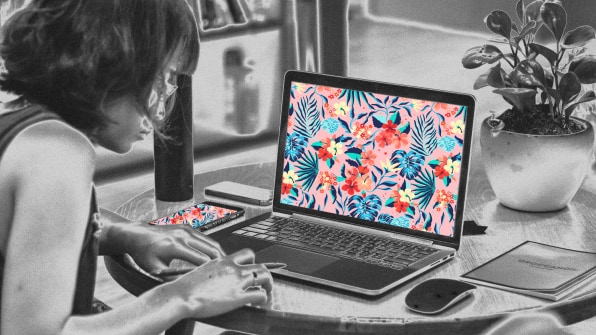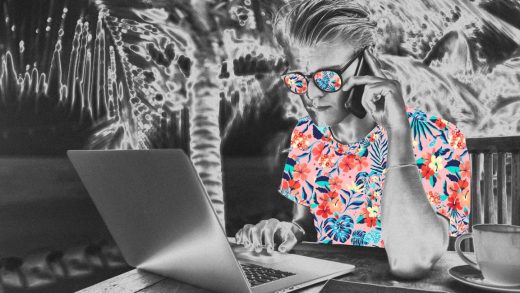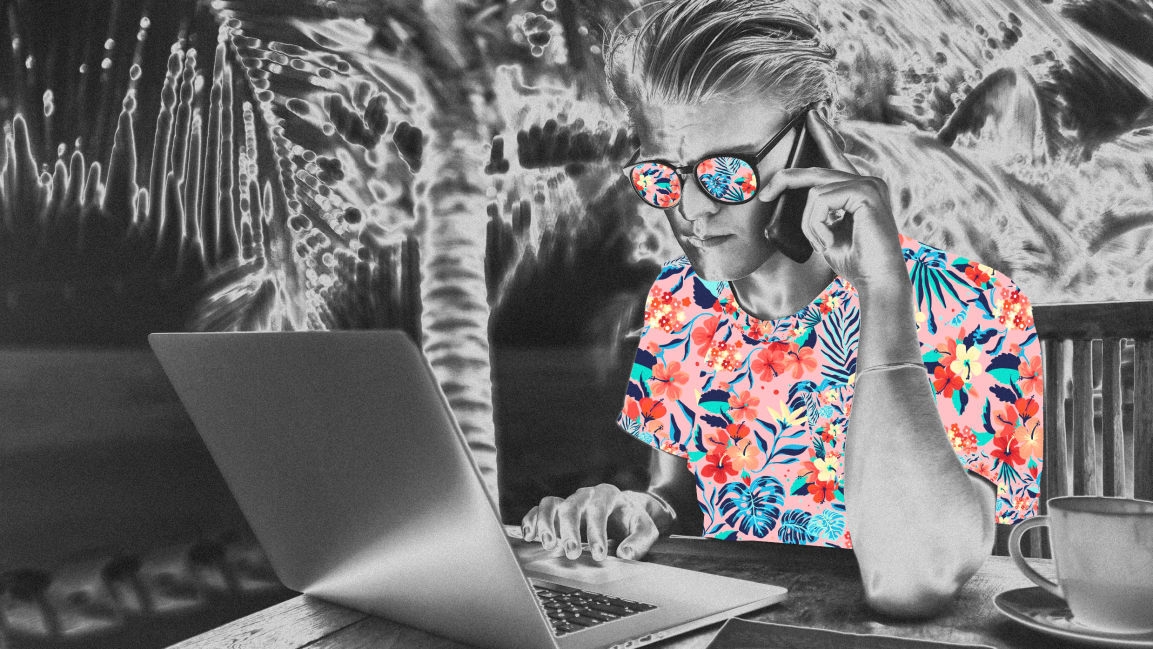Use this simple psychological trick if productivity culture has made it impossible for you to relax
Vacation season is wrapping up, but this year’s most coveted holiday may not be what you’d expect. One of the most talked-about celebrity destinations of the summer wasn’t Saint Barts or Ibiza but Google’s “summer camp” conference, where elites discussed climate change and other pressing social issues. Meanwhile, tech leaders such as Twitter’s Jack Dorsey are spending their precious days off at silent meditation retreats, and Mount Everest is overflowing with inexperienced climbers checking the harrowing journey off their bucket lists. Even the average worker is exhorted to make sure their vacation is productive and returns them to work refreshed and inspired.
While a life of leisure used to be a marker of wealth (and still is in many places), for American elites a week spent lounging on the beach isn’t as impressive as it once was. We’ve become a nation obsessed with productivity, and that fixation has spilled over from our work lives to our leisure. There is growing pressure to spend our free time improving ourselves or the world around us, whether it’s training for a triathlon, volunteering in a developing country, or climbing the highest peak on each continent (known as the “seven summits” challenge).
Why is it so hard for Americans to relax unless we feel we’ll have something productive to show for it?

[Source Photo: Tran Mau Tri Tam/Unsplash]
In the past, being able to idle away your time enjoying the finer things in life was a mark of wealth and status (think Downton Abbey). Today’s CEOs and celebrities, however, are more likely to “humblebrag” about putting in 80-hour workweeks on minimal sleep. Even Kim Kardashian, who’s built a lifestyle brand out of conspicuous consumption, feels compelled to balance this excess with an insistence on how hard she works.
Over the course of several studies, our research with Georgetown professor Neeru Paharia found that the majority of Americans today consider being busy a status symbol. When asked to review hypothetical descriptions of people, Facebook posts, and letters from friends, subjects consistently associated indications of busyness with being more competent and ambitious, more sought-after in the job market, and having greater wealth and social status. This thinking seems to be culturally dependent, however, as a group of Italians we tested held a more traditional view linking leisure and free time with higher status.
There are many roots for this type of thinking in American culture, from the Protestant work ethic to our fascination with people who pull themselves up by their bootstraps. Our traditional reverence for hard work has intensified as we have shifted to a knowledge economy, where specialized skills and expertise are the most precious commodities. Since human capital is the scarcest asset in today’s economy, having many demands on our time affirms our sense of significance and signals our value to others. Being too busy for a vacation—or only taking one in the interest of self-improvement and enhanced productivity—shows how in-demand we are.
This obsession with productivity and efficient use of time has spilled over from our professional lives to our leisure. As success and busyness at work have become the primary source of our identities and social status, there is growing pressure to spend our free time in productive pursuits. Mark Zuckerberg, for example, shares very little with the public about how he spends his life outside of work with one exception: an annual personal challenge. Over the past decade, Zuckerberg has set (and publicly announced) ambitious goals for his scarce leisure time, ranging from reading a book every two weeks to visiting every U.S. state to learning Mandarin.
Research supports the idea that our “productivity orientation” is influencing how we spend our leisure time. Over the course of several experiments, one of us (Keinan) and Columbia Business School professor Ran Kivetz found that many Americans seek out unique “collectible experiences,” even those that aren’t enjoyable in the moment, such as waiting hours in the snow to watch the ball drop in Times Square on New Year’s Eve.
Rather than pursuing relaxation and pleasure in their free time, these people, much like Zuckerberg, hope to check items off their bucket list and add novel, unique encounters to their “experiential CV.” The research found that people with a greater “productivity orientation”—demonstrating beliefs and behaviors associated with ambition, hard work, and maximizing efficient use of time—were more likely to favor collectible experiences over pleasurable ones.
Technology is exacerbating our focus on productive leisure by making it easier for people to share how they spend their free time. On social media, users post carefully curated slide shows of themselves crossing marathon finish lines and climbing Machu Picchu. Conspicuous consumption used to be a way for people to display their money through scarce luxury goods. Now technology makes it possible to flaunt how they spend their valuable time only on activities that are truly meaningful, productive, or spectacular.
Is there any way to escape our fixation on busyness and allow ourselves to relax? While we may not be able to completely unlearn the “productivity orientation,” our research together with Columbia Business School professors Oded Netzer and Ran Kivetz suggests that reframing how we think about leisure pursuits can help. Having a “functional alibi” that articulates a purpose for an activity lets us indulge with less guilt. For example, a relaxing week at the beach might be seen as a necessary break to recharge and return a better worker, parent, and friend.
We see functional alibis all the time in today’s wellness culture. Meditating, getting enough sleep, and other forms of “self-care” are promoted as ways to be more productive, focused, and creative. While some decry companies for coopting activities such as mindfulness in the service of productivity rather than personal well-being, perhaps we can embrace these pursuits as having dual benefits. If giving ourselves a functional alibi is what we have to do to relax, it may be our best option.
The alternative—staying relentlessly focused on productivity—doesn’t pay off in the long run for most people. Another set of studies by Keinan and Kivetz examined the phenomenon of hyperopia or “excessive farsightedness.” They found that people who prioritized future benefits over present pleasure came to regret their choices more and more over time. Focusing on the potential for future regret—for example, the idea that no one on their deathbed wishes they had worked more—allows people to relax their productivity orientation and let themselves enjoy the present more.
As busyness has become an aspirational lifestyle, our fixation with productivity has begun to spill over from work to play. For the more privileged in today’s economy, time is much more scarce than money, so there is pressure to spend it well. While we may long for a time when leisure was lazy, it can be hard to simply turn off our efficiency obsession when we want a break. Fortunately, humans are remarkably good at finding ways to reframe nearly any indulgence—from drinking wine to Netflix binges—as being good for us. We can also take our penchant for long-term thinking and imagine how we may come to regret today’s overly disciplined choices further down the line. We should use these alibis more if that’s what it takes for us to really, truly, kick back and relax.
Silvia Bellezza is the Gantcher Associate Professor of Business in Marketing at Columbia Business School, where she teaches marketing to MBA and executive MBA students. She earned her Ph.D. in marketing from Harvard Business School.
Anat Keinan is an associate professor of marketing at Boston University’s Questrom School of Business. She received her Ph.D. in marketing from Columbia Business School.
(11)



